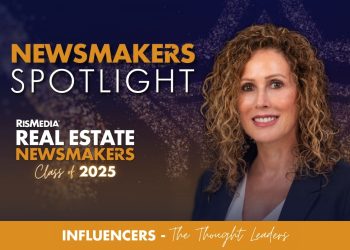Each assumption might be plausible and even likely. But none is a sure bet, either. And brokers without contingency strategies resign their companies to the vagaries of fate.
Assumption No. 1
I can sell my business when I want to, and get my price.
Schlott has bought and sold several companies, and he thinks succession planning is less urgent for brokers because “it’s relatively easier to sell a brokerage than, say, a lumberyard or a liquor store.” And, he adds, there are still enough buyers out there to keep the market competitive.
June Slusser, the 57-year-old president of Coldwell Banker High Country Realty in Blue Ridge, Ga., has no immediate plans to retire. But she’s been contemplating the future lately. The time to sell, she says, “is when the market’s at the peak. And I think the best is still ahead of us for a few more years.” She’d time her exit to coincide with the renewal of her company’s franchise agreement. And she’s certain that day will come well before she’s 70.
But looking around, she’s not seeing a whole lot of buyers out there, and those that are want to pay on an “earn out” basis over time.
Perez says one of the primary considerations in any exit strategy must be “how much do I need to retire, and what do I need to get there.” The problem, he says, is that brokers tend to overestimate their companies’ value. “Nobody really knows what worth,” Perez contends, especially if a business’ reputation and cachet revolve around the owner.
Astrachan says that any broker looking to sell a business must show why the company’s top and bottom lines will stay strong once the owner departs. In their hunt for a strategic buyer, brokers might also need to accept competitors as suitors.
But owners in general often wait too long to put their companies up for sale, observes Rivers. He recommends that brokers whose exit strategy is to sell their book of business should start working on that sale in their 60s, “which gives you a chance to fail at least once” and try again.
Brokers must reconcile their exit strategy with the cold, hard reality that their company might change irrevocably under new ownership. “Most brokerages that have been sold since 2005 are now remnants of what they once were,” says Gino Blefari, senior vice president at HSF Affiliates.
Assumption No. 2
I can find the right person to run the business.
Last May, Blefari sold Intero Real Estate Services, the company he founded in 2002, to HSF Affiliates’ parent company HomeServices of America. Blefari will become HSF’s chief executive on January 1.
That transition went smoothly, explains Blefari, because his two lieutenants at Intero—Tom Tognoli, who is now president and CEO; and John Thompson, its COO—have worked with him for decades.
“You couldn’t find two more different guys, but each has a little bit of what I brought to the company,” says Blefari: Tognoli holds employees accountable and Thompson bonds with every agent. At HSF, Blefari says succession planning will “evolve,” as he searches for the person “who can carry out the same culture and who understands our philosophy.”
Finding the ideal replacement within one’s company, though, can be challenging. Owens of Succession Strategies observes that mentoring has not been brokers’ strong suit, historically. Even if it were, brokers are dealing with a fluid workforce that includes agents who, in the main, are neither interested in running a company nor have the equity available to buy in as owners.
Another argument in favor of drawing up a detailed succession plan is that there’s no guarantee a chosen successor will be around to take the reins once the owner decides to step down.
Case in point is Coldwell Banker Caine, a brokerage based in Greenville, S.C., that’s been owned by the Halter family since 1933. Frank Halter, who had been running the company since the early 1980s, lost his 45-year-old son Robert Caine—who was managing the commercial side of the business—to lung cancer in August 2007. Halter was 76 years old at the time.
“It was a wake-up call for me and the family,” recalls Frank’s other son, Brad, who is currently Coldwell Banker Caine’s chairman. Brad saw a company that, while successful, didn’t have the professional management it needed to move forward profitably. “We lacked the ability to finish things off,” he says.










